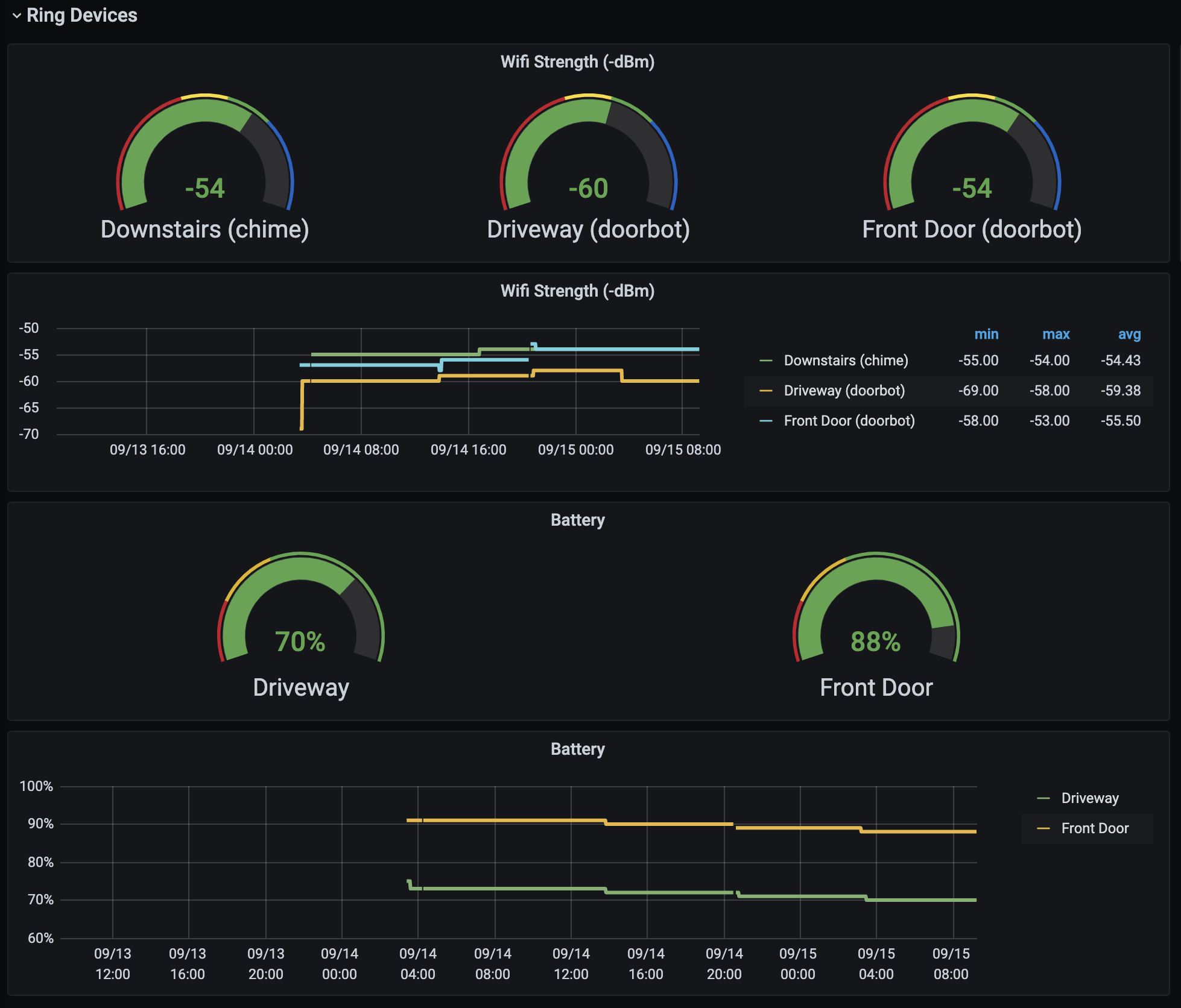This project's goal was for me to be able to plot statistics like my doorbell's battery life, wifi strength, etc using Prometheus and Grafana. Effectively this:
The ringapi package in this module may turn out to be a generally useful thing so we'll see how this evolves.
Inspiration was taken largely from python-ring-doorbell as a great working example of Ring's 2FA implementation and a few of the available APIs. Some of the initial types I lifted from golang-ring-doorbell which I'm not sure works correctly with 2FA, but a few of the types were useful to copy anyway.
go build github.com/cheezypoofs/ring-exporter/cmd/ring-exporterBefore you can use the exporter, it must be initialized. This includes creating the initial configuration file as well as creating a token for use in the API calls. Initialization can be re-executed to generate a new API token if for some reason a previously-generated one is no longer working.
To initialize a new config file (if needed) and (re)generate a token, execute the command:
./ring-exporter --config.file <path to config file> initThis will create a ring-config.json file in the path you specify if it does not already exist and will also prompt you through the 2FA process to persist a ring-state.json in the same directory as the config file and will include the token.
The ring-config.json will always migrate itself forward when you run a command and you can impose changes to the behavior by editing this file. This is where things like what port to expose metrics and other things will be exposed.
./ring-exporter --config.file <path to config file> testThis will make a one-time query and emit some text to indicate if things appear to be working.
This is meant to be the background task that basically runs forever or until terminated. This will start a small web service at http://<ip>:9100/metrics (or whatever you configure) and expose the metrics for scraping by prometheus.
./ring-exporter --config.file <path to config file> monitor